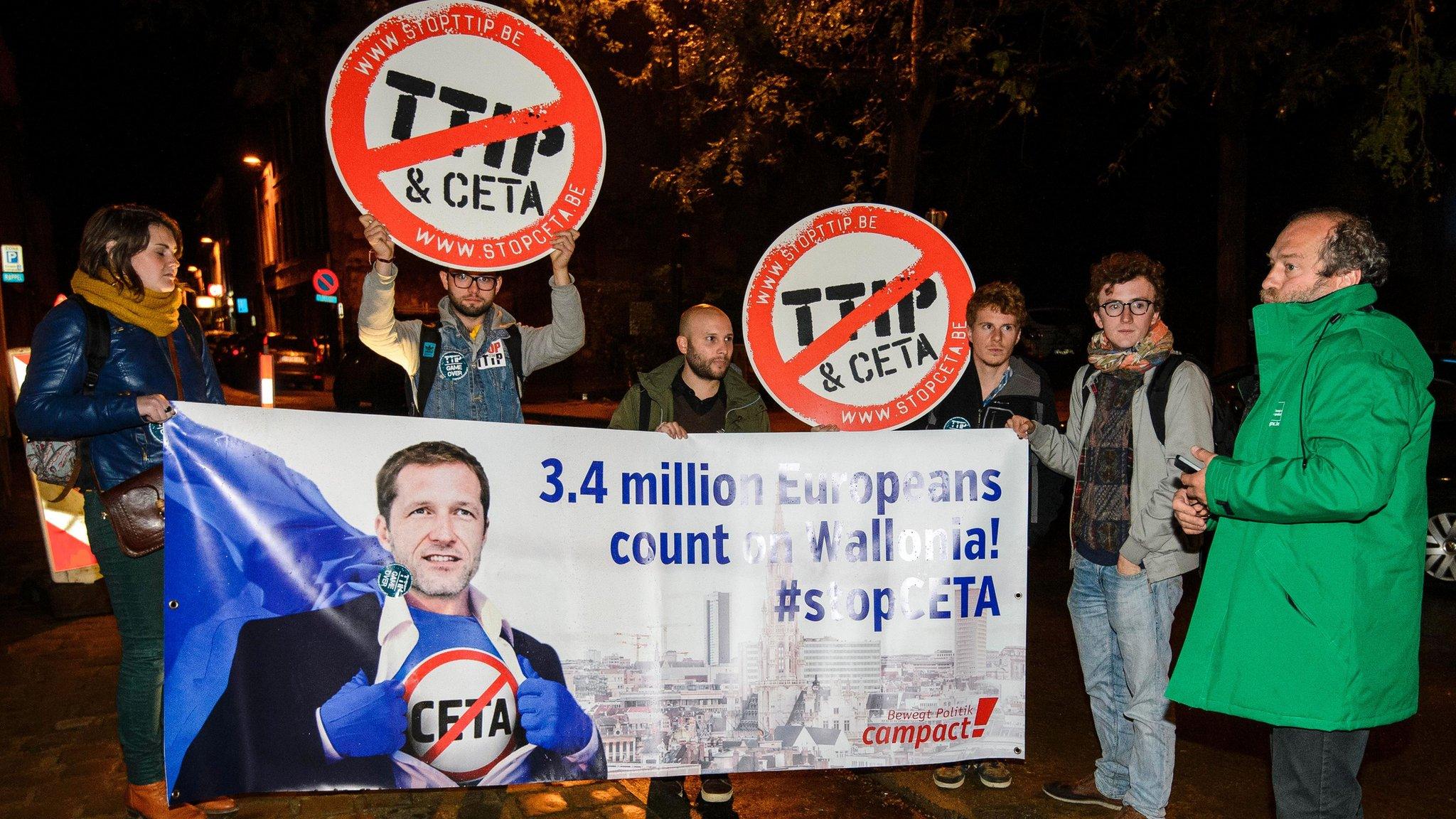Wallonian parliament's Brexit lesson for Wales
- Published
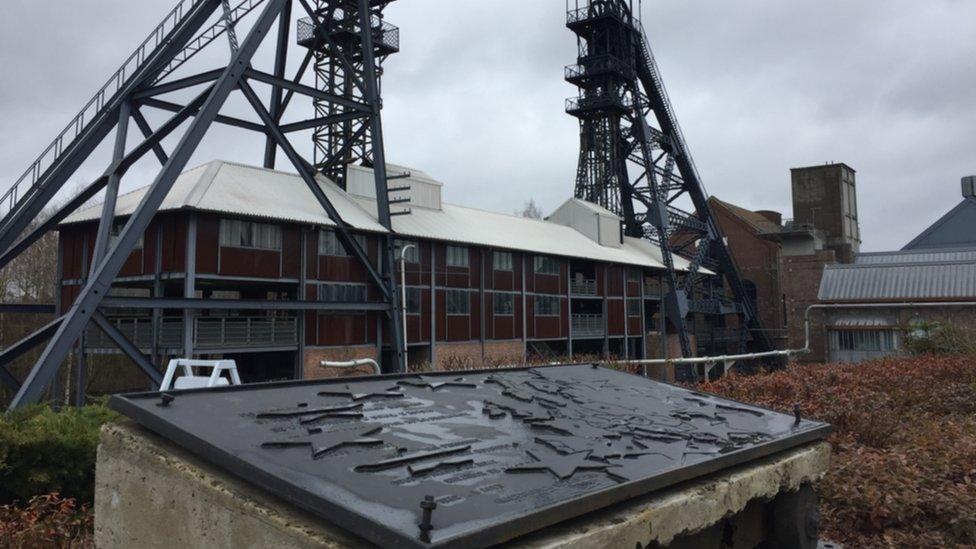
Bois du Cazier memorial
It was a major mining disaster that killed 262 workers.
The lives of the miners of 12 different nationalities were taken after a fire engulfed the Bois du Cazier mine at 08:10 on 8 August 1956.
Today, the former colliery in the Wallonian region of southern Belgium stands as a memorial to that tragedy over 60 years ago.
Of course, much of Wales' coal mining history has also been consigned to the history books and converted into museum pieces.
The similarities do not end there: both boomed as a result of heavy industry before falling on harder times as those industries faltered, and the names Wales and Wallonia originate from the Germanic term "Walhaz" used historically to mean "foreigner".
But when it comes to international trade agreements, the similarities end.
In 2016, the Wallonian Parliament blocked a trade deal between the European Union and Canada that was seven years in the making.
The French-speaking region demanded stronger safeguards on labour, environmental and consumer standards. They got their wish and consented to the deal a few days later.
"Most of the time the federal governments, the national governments, will be in charge of international relationships and the region will have to follow the lead of the federal governments. In Belgium this is totally different," Jeremy Dodeigne, political scientist at the University of Namur, told me in the courtyard of the Wallonian Parliament.
Because the EU-Canadian deal would affect some of the regional parliament's responsibilities, the Belgian system "gave an exceptional power to a small territory", he added.
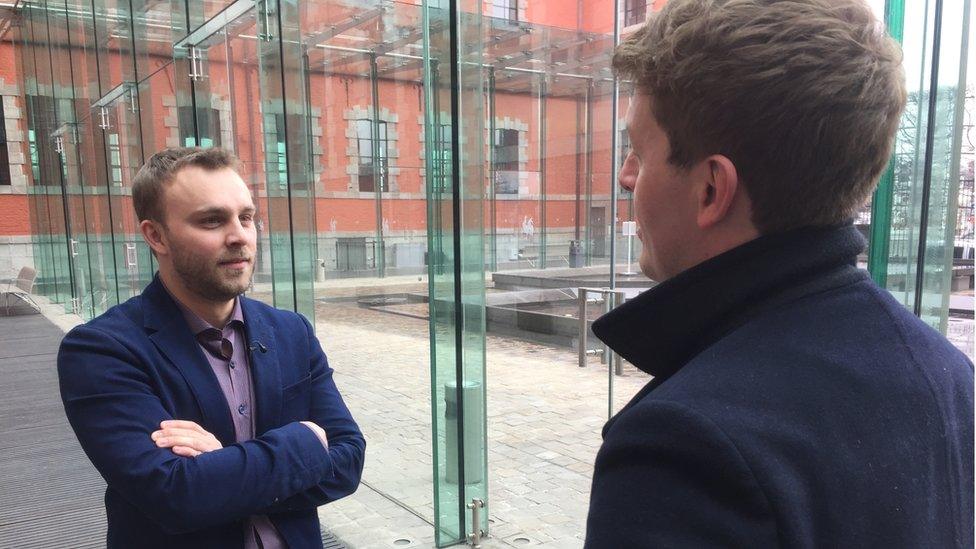
Jeremy Dodeigne said Wallonia has the power to stand up to Belgium's federal government
And it is a power the parliament is happy to wield when it comes to the Brexit deal too, the president or speaker of the Wallonian Parliament told me during a tour of the 75-seat chamber.
André Antoine added: "We can intervene, and have a duty to do so, on the international scene to ratify treaties or not.
"We will have an influence on the Brexit process.
"We regret the departure of Great Britain and it worries us because the Netherlands and Belgium are the main partners for Britain, for Wales, for Scotland.
"We are extremely worried and so we are involved in the Brexit question."
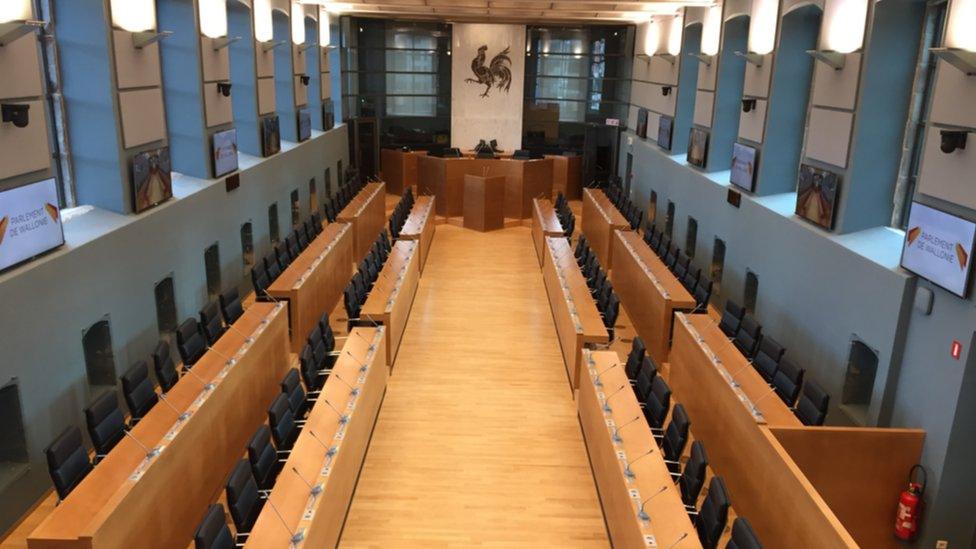
Inside the 75-seat Wallonian Parliament
Back in Wales, outside the Welsh Assembly in Cardiff Bay, Megan Mathias, of the Wales Centre for Public Policy, said a right to a say in trade negotiations is something "we simply don't have in Wales".
The co-author of a paper looking at the example of Wallonia and other sub-national governments in international trade talks, she said the example of the Quebec government in Canada during negotiations with the EU, external may be more instructive for ministers in Cardiff.
"What stands out from the case of Quebec is the advance preparation and engagement that they did before the seat at the table was even confirmed," she said.
"They were already speaking with the EU as the other side of the negotiations.
"They had already appointed people to be in those trade teams and they had really prioritised the areas of economic importance to Quebec.
"However strong your economic standing, you're one voice amongst many so prioritisation to stand out is really important."
When it comes to the final deal, the Welsh first minister has said any future deal on Brexit should be ratified by all four UK parliaments.
Carwyn Jones warns the UK government against deciding post-Brexit policies by itself
In an attempt to influence the negotiations, the Welsh Government and assembly have been to Brussels during the Brexit process to lobby EU negotiators and there are channels of communication with government ministers and officials in Westminster.
But the first minister believes the "worst thing that could happen would be if the UK government tried to do everything itself".
"It's hugely important that we are as involved as possible. There is a model for this," Carwyn Jones said.
"When I was rural affairs minister, the different ministers from the different governments would meet every month, we'd decide what the position would be for the European council of ministers, external meeting that would occur a week or so afterwards and it worked very well.
"Quite often I'd be in Brussels, there'd be developments in that meeting, the DEFRA [Department for Environment, Food and Rural Affairs] secretary of state would come out and ask our view to get our agreement, it worked a treat. That, I think, is the best way forward."
The UK government has previously said it will liaise closely with AMs and Welsh ministers in order to "deliver a deal that works for the whole of the UK".
Of course, Welsh Secretary Alun Cairns represents Wales' voice around the cabinet table in Downing Street and is involved in some of the government's Brexit sub committees, although he did not attend a key strategy meeting last month.
Welsh MPs will also have a say when the Westminster Parliament gets a "meaningful" vote on the final Brexit deal, which, as it stands, will be a choice between accepting the agreement or leaving the EU with "no-deal".
But, for now at least, politicians in Cardiff Bay can only look enviously at their counterparts in Wallonia when it comes to having a final say on Brexit.
- Published24 October 2016
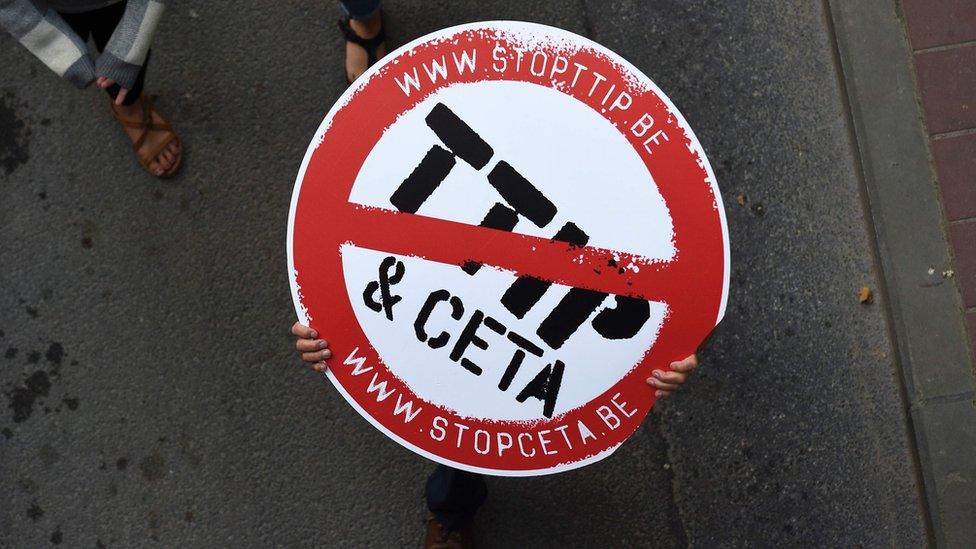
- Published24 October 2016
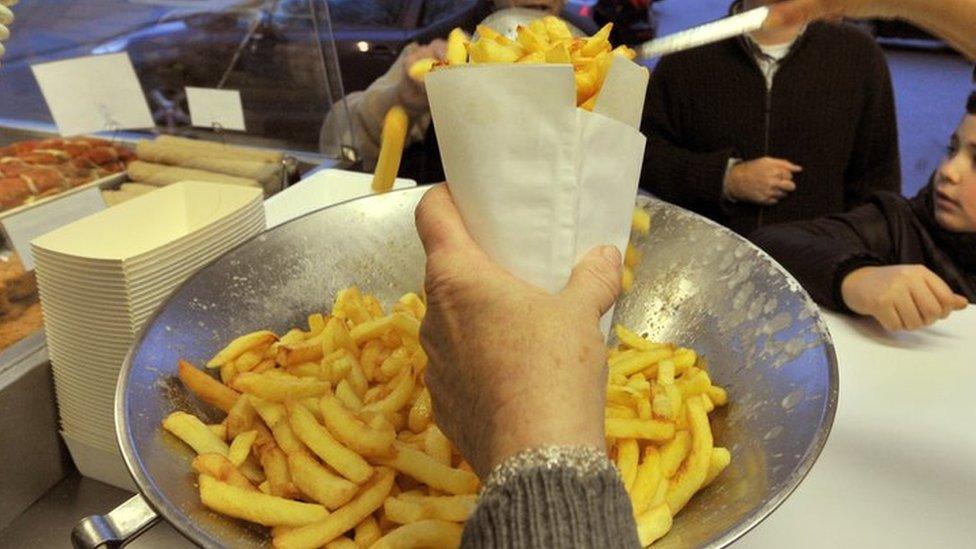
- Published24 October 2016
